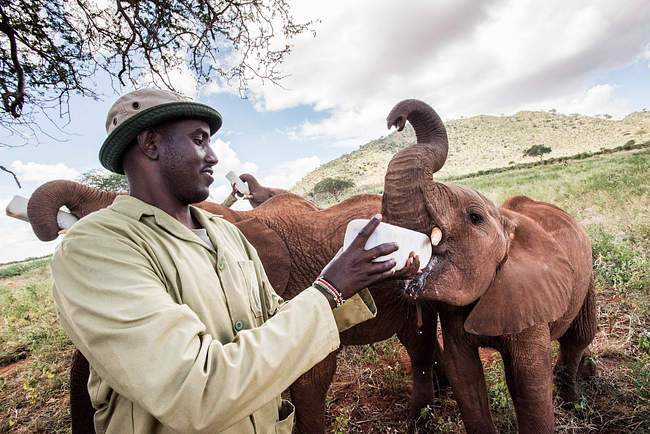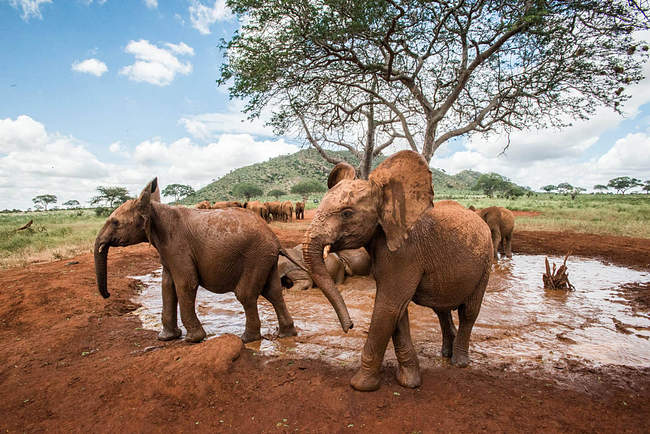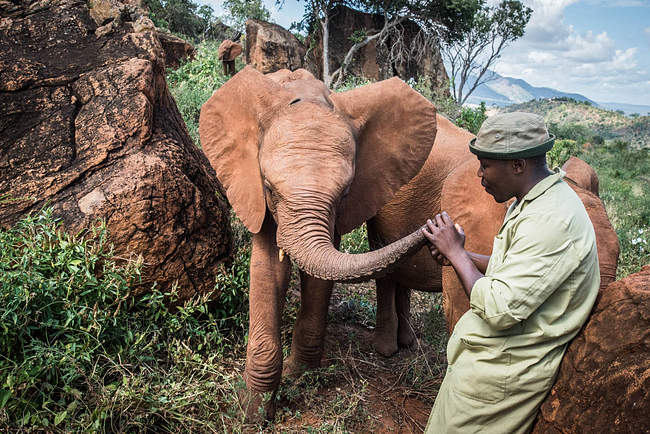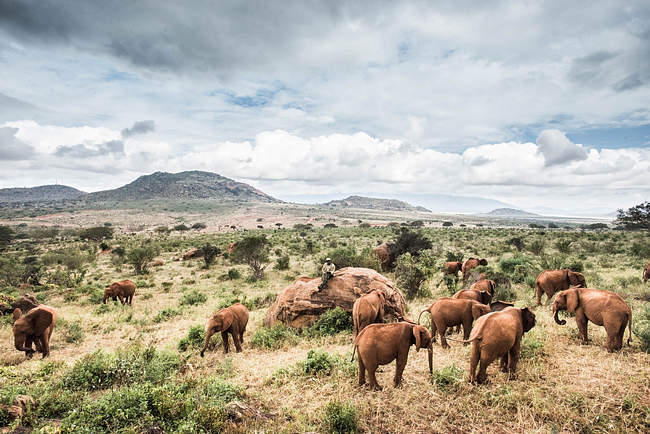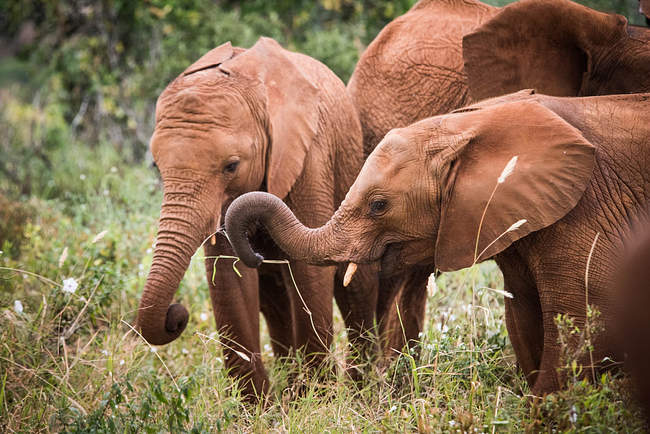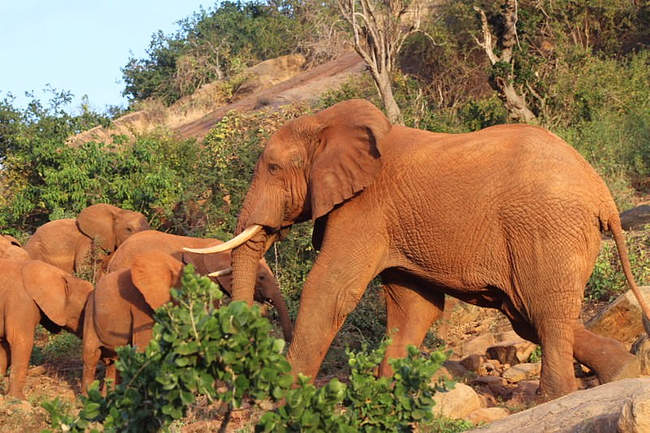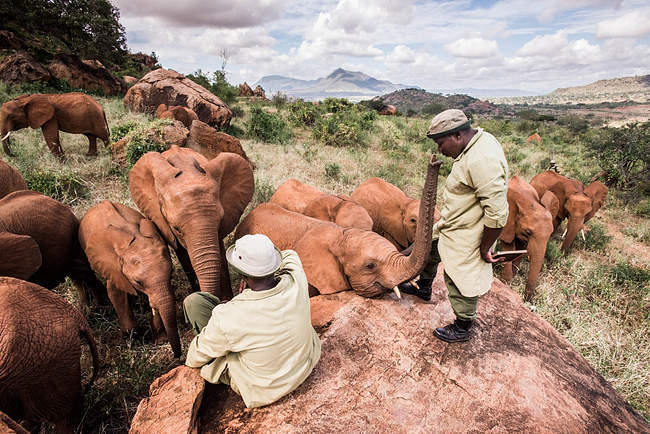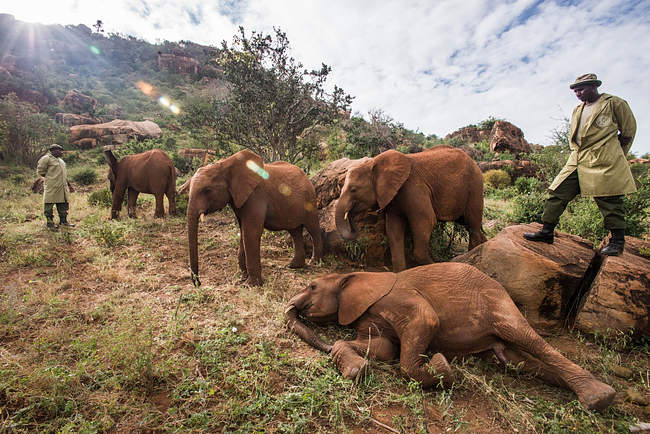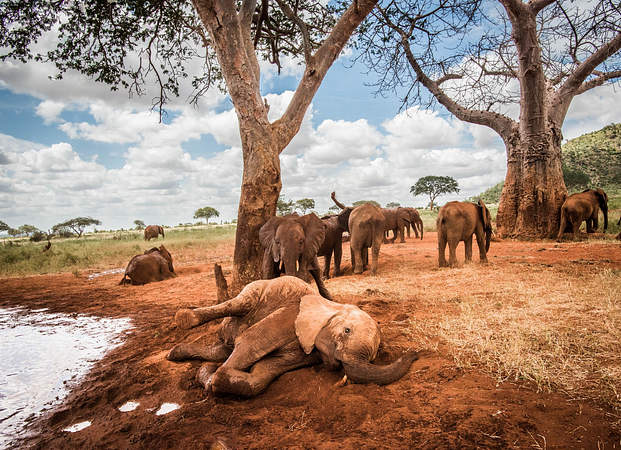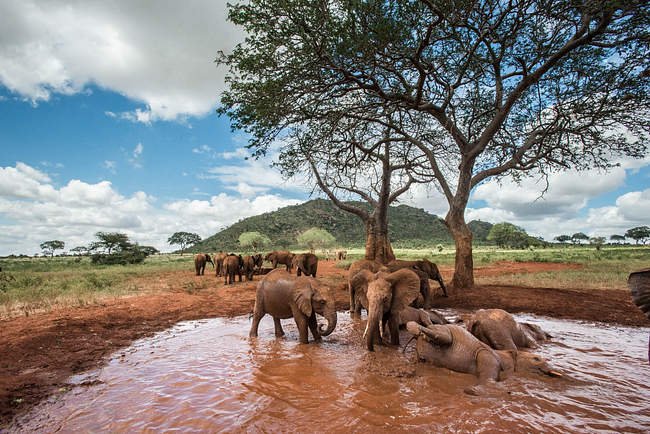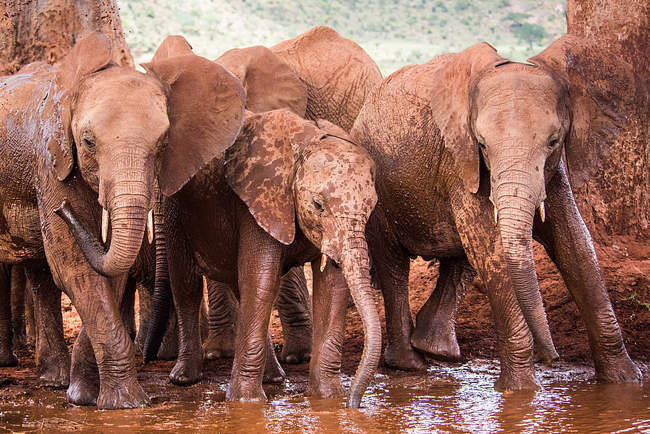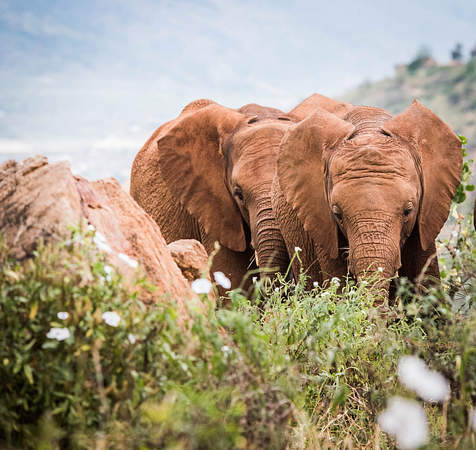Mbegu, Ndotto, Lasayen, Murit, Godoma and Ngilai made their big move to our Voi Reintegration Unit well over a month ago and in that time we have seen them wholly embrace their new surroundings
Since graduating to Voi, these six orphans have integrated well into the dependent group of older Voi orphans, and, with the exception of Mudanda and Tahri who have had their precious position of ‘cossetted baby’ usurped and thus are prone to some jealous behavior, the transition has been incredibly smooth and welcoming.
It has been satisfying to see our little sickly boy Murit, who was slow to leave the Nursery due to his diminutive size and poor health over many years, now thrive in his new home. He was very ready for this move as it turns out, and is loving the stimulation and interaction with the older dependent orphans, some ex-orphans, and the wild herds. Despite integrating well, best friends Lasayen and Ndotto are remaining close, with Ngilai still hooked on his Keepers, and as mischievous as ever
Generally we are happy to report that the new arrivals are mixing very well with the Voi older orphans, with older female Ishaq B particularly attentive. Another rather unexpected visitor has been ex-orphan big boy Laikipia who has chosen to hang around in the area and to join the dependent babies often throughout the month of June. The relationship they are able to have with him is hugely exciting for our little boys Ndotto, Murit, Ngilai and Lasayen, and always welcomed by older bulls Tundani and Nelion too.
Big and handsome, Laikipia evokes a sense of awe in the younger bulls who look to emulate all that he does. His interest in them, attentiveness and patience suggests he understands all too well their unfortunate start to life, something he certainly will not have forgotten despite living a wild life for many years now, and as a result feels a responsibility to mentor them.
Our girls Mbegu and Godoma remain inseparable and they too have benefited from a number of intimate interactions with wild herds who have joined them at their midday mud bath location, sometimes with tiny wild babies too which is always appreciated by our orphan females who can never resist babies. It has been surprising how confident they are amidst the wild herds and how frequently they are experiencing these encounters due to the fact that there are hundreds of wild elephants enjoying the still abundant vegetation, and plentiful water in this particular area of the Park.

It is always a conflicting time when we have to say goodbye to special orphans who have shared our daily lives at the Nursery for three years or more as they embark on their reintegration journey, a journey that is designed to equip them for a wild life once more. Despite this process taking many years, it is still a significant step and the beginnings of a growing independence for them. One is left filled with a sense of pride having got this far in raising them through infancy and pulling them through, more often than not, challenging beginnings.
In Ndotto’s case this was miraculous given that he never had his mother’s colostrum, with the fetal membrane found next to him when he became entangled in a herd of Samburu livestock, his mother having fled when she first heard the sound of human voices. There is always a small part of one that cannot help but selfishly wish they would remain little and dependent forever, but a full and complete life in the wild is what they deserve, and what we ultimately strive so hard to provide.
Any fleeting possessive thoughts are immediately erased as well when you see how happy and fulfilled they are, and appreciate just what an important and natural progression this is for our orphans, to learn from those older and wiser, and to be exposed to all that can awaken instincts so vital for a successful wild life one day. When one sees how truly happy and buoyed up they are in this natural wild environment, it instills a great sense of pride as one reflects on each of their individual stories, knowing how far they have come, and observing their individual characters blossom further as they grow. The transition to a full independent wild life is a slow process, taking very many years to achieve, so we can still share in Mbegu, Ndotto, Lasayen, Murit, Godoma and Ngilai’s journey for a good long time as they will remain very much dependent on our care for at least another seven to eight years.

